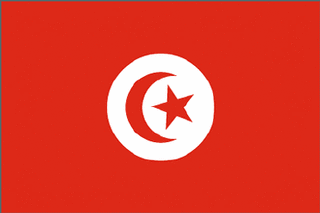Europe must show Tunisia that democracy pays
 Unconditional solidarity with the Tunisian people, more support for civil society, and a call for strong EU assistance in dealing with the many challenges of Tunisia's transition to democracy, were the key messages voiced by MEPs after the first European Parliament delegation visit to Tunisia (3-6 February), following the "Jasmine revolution", at a joint meeting of the Foreign Affairs Committee and the Human Rights Sub-committee on Monday.
Unconditional solidarity with the Tunisian people, more support for civil society, and a call for strong EU assistance in dealing with the many challenges of Tunisia's transition to democracy, were the key messages voiced by MEPs after the first European Parliament delegation visit to Tunisia (3-6 February), following the "Jasmine revolution", at a joint meeting of the Foreign Affairs Committee and the Human Rights Sub-committee on Monday.
Back with a first-hand report on the mission, delegation co-chair Pier Antonio Panzeri (S&D, IT), listed the key challenges facing Tunisia as "first, economic and financial crisis, plus a tourism crisis which will most likely create a debt crisis too. Second, the safety and security of persons, structures and institutions, and also of the economic productive system. Third, the challenge of creating the democratic process, including the reform of the electoral system, of the judiciary, establishing a free press and the very idea of freedom in general".
Euro-Mediterranean Human Rights Network President Kamel Jendoubi said "we haven't heard enough, either from the EU or from EU Member States or other states supporting clearly what is happening in Tunis (…). What people want is that the voices who supported the regime are removed from power,” he said, adding that while the EU should support the transitional government, it should not give it a blank cheque.
Referring to the supposed Islamist threat, Mr Jendoubi said that the "Facebook generation" will not allow totalitarianism, be it secular or religious. He insisted that one of the most urgent needs is to put in place projects which would incorporate young people in political life. In line with Jendoubi’s views, Heidi Hautala (Greens/EFA, FI) also called for gender equality and a heightened role for women in the new Tunisia.
Setting up political parties and holding elections
“Tunisian civil society has taken on its shoulders all the efforts in confronting the regime of Ben Ali. Now it is time to set up political parties, as they are the cornerstone of the political process of democratisation", declared Mr Panzeri. Metin Kazak (ALDE, BG) called on the EU to offer more support to civil society and ensure that all soon-to-be-established political parties will have a fair and equal access to elections, irrespective of whether theyl take place before or after a constitutional reform.
EU election observation mission
MEPs welcomed the Tunis provisional government's invitation to the EU to send an election observation mission. "We should be present, and not only as electoral observation mission. Maybe we should think of a new kind of electoral observation mission, which means a long-term follow up of the development of the conditions for free and fair elections", said Ms Hautala.
International Donors' Conference for Tunisia
MEPs urged that a donors' conference dedicated to Tunisia be convened in order to offer targeted support where the risk of deep social tensions remains high (40 to 50% estimated youth unemployment) and the economic downturn is visible (e.g. tourism revenues recently slumped by 40%).
Simon Bussutil (EPP, MT), called for the drawing up of a broad "Marshall Plan", and not just a financial envelope, “to help those that have taken the road of democracy.”
“We should make sure that the right support reaches the country, ECB credit guarantees could be envisaged”, suggested Carmen Romero Lopez (S&D, ES).
Parliament should scrutinise EU assistance package
Regarding the planned EU assistance package being currently prepared by the External Action Service and to be presented to the Tunisian side by Foreign Affairs High Representative Catherine Ashton during her upcoming visit to Tunisia, Ms Hautala requested access to this document and suggested that Tunisia to be part of the list of pilot countries included in the revision of EU financial instrument for the promotion of democracy and human rights (EIDHR).
The idea of setting up an inter-institutional task force to meet Tunisia's need for assistance with the transition process - as stated in a recently-passed European Parliament resolution - received mixed reactions from the MEPs. According to Michael Gahler (EPP, DE), this idea is “a non-starter” since there is already a clear division of labour among the European institutions.